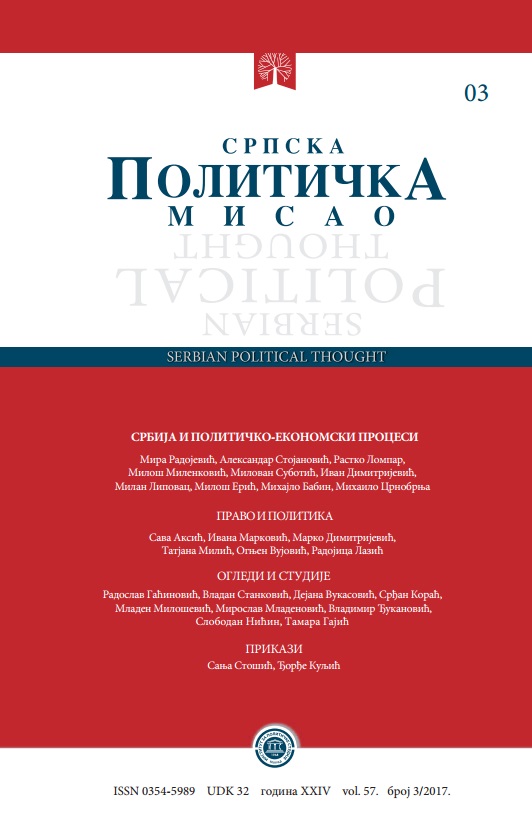Регулисање употребе силе у међународним односима: случај резолуције 2249 савета безбедности УН
Regulation of the Use of Force in International Relations: Case of Resolution 2249 of the Un Security Council
Author(s): Tatjana MilićSubject(s): International Law, International relations/trade, Security and defense, Peace and Conflict Studies
Published by: Институт за политичке студије
Keywords: United Nations; Security Council; resolution 2249; use of force; international relations; international law; right to self-defence; Iraq; Syria
Summary/Abstract: Use of force in international relations is prohibited by international law. However, states have continued to achieve objectives in international relations by means of force. In fact, they have used arguments based on international law to justify the use of force. In such circumstances, they choose to convey their arguments in the frame of wide (expansive) or narrow (restrictive) interpretation of relevant international law rules and decisions of the UN Security Council. This paper aims to determine whether one of these two interpretation approaches has prevailed as a pattern of thinking and shaping of states’ international actions. In this context, the author selects to analyze resolution 2249 of the UN Security Council and its treatment in the legal arguments of states that have used force against ISIL in Iraq and Syria, as well as to examine the reactions of other UN members and international law doctrine on such interpretations of the Council’s decision. Analysis of the text and context of the resolution confirm that fight against international terrorism increases the pressure to promote expansive approach as a prevailing pattern in interpretation of rules on the use of force in international relations. The case of resolution 2249 illustrates that legal arguments of some states reflect stronger influence of the expansive approach to interpretation of relevant international law rules and decisions of the Security Council. However, the analysis doesn’t confirm that this approach prevails as a pattern of thinking and shaping of states’ international actions. Reactions to resolution 2249 indicate increasing pressure to expand the scope of the right to self-defence as the only permissible ground for unilateral decision on the use of force in international relations. The pressure results from the fact that actions of non-state actors (terrorist groups) are more comprehensive and contribute to states’ determination to resort to unilateral use of force. Therefore, the need to define key concepts of legal regime on the use of force in international relations is more than obvious. However, it will not be easy to clarify the scope of application of these rules, since it is questionable are all states, particularly permanent members of the UN Security Council, willing to clearly and explicitly determine the limits to political (ab)use of international law.
Journal: Српска политичка мисао
- Issue Year: 2017
- Issue No: 3
- Page Range: 165-183
- Page Count: 19
- Language: Serbian

